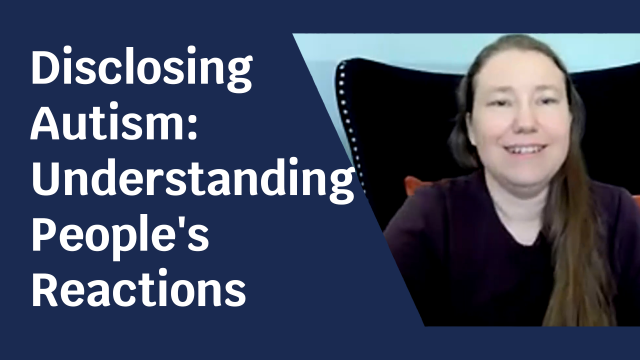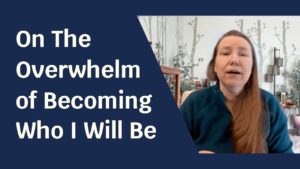
This is an excerpt from my workshop, Unmasking Strategies for Safety.
Why do they respond like that?
I want to talk about people’s reactions when we start to unmask or disclose our autism. One of the most common things that I see, on Twitter at least, around the #ActuallyAutistic community there is the complaints that someone did the “but you don’t look autistic” reaction, or “you’re not like my autistic kid/nephew/person I know.”
So, what’s going on with that? Sometimes there’s genuine intended meanness there but, most of the time, I don’t think it’s intended meanness. Most of the time, I think that people are ignorant. They’ve been conditioned to believe a lot of lies…
So they’ve been conditioned to believe that autism is these particular stereotypes, and they have one, or maybe two, stories about what autism looks like. And they don’t know any different.
But here’s the thing… When you first started figuring out or questioning that you might be autistic, you probably spent a lot of time reading, and comparing your experiences with others, and searching for answers, finding new questions and searching those down. It took a while, anywhere from days to weeks, months, sometimes years.
But when you start, that’s all going on in your head. Unless you’re sharing that with the people as you’re going through it, as you’re starting to question, they don’t know that that’s going on necessarily. They’re not processing the same things that you’re processing. They’re not reflecting on your life in the way that you’re reflecting. They’re not slowly and gradually being able to come to terms with this new identity, and reframe their assumptions about autism.
They’re not slowly and gradually being able to come to terms with this new identity, and reframe their assumptions about autism.
What they’re getting is often just something that to them looks out of the blue. It’s all of a sudden this person that they know, and they think they know reasonably well, they know what to expect from you, says, “Oh, I’m someone else, and I have this identity.”
And they don’t have that processing time to themselves, quietly in their own head, to come to terms with that. So the first thing out of their mouth is often an unintentionally insulting ‘rough draft’, if you will, of the process that they may be willing to go through, but they haven’t gone through it yet.
You’ve gone through it, you’ve gone through a lot of processing, you’ve had time to figure this out, to come to terms with it. They’re not getting that. So they need that same time that you got, they need time to consider what that means, to reevaluate their ideas of what autism is and of who you are. And if you’ve been masking extensively throughout the time that they’ve known you, they might not see what you see, because you’re seeing what’s going on inside you.
They only see the outside version, they see the masked version, they don’t see the one that is hidden. So “you don’t look autistic”, or “you don’t seem autistic”, or any of those kinds of things, what you’ve been showing them doesn’t look like what they associate with autism, probably because you’ve been hiding it pretty well, or at least to some extent.
So giving them time to process is really, really helpful for a relationship, if that’s the relationship that you want to maintain.




